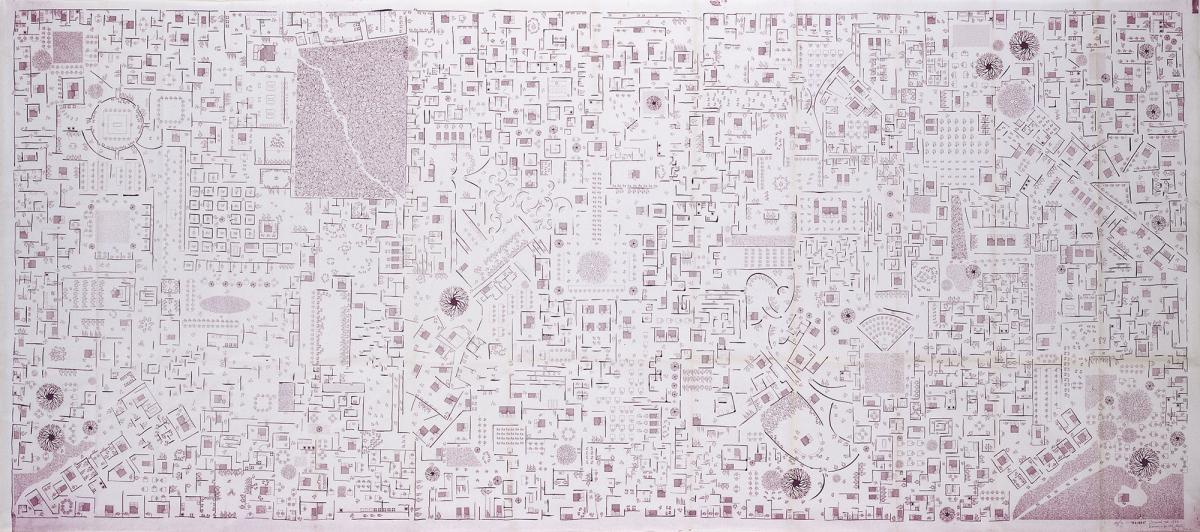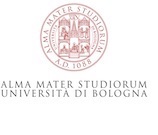MODERN-COLONIAL GEOGRAPHIES IN LATIN AMERICA
THE MIRAGE OF THE CIVILIZING CITY AND THE ARCHAIC COUNTRYSIDE
London (King’s College London)
April 5-6, 2018
Keynote Speaker: Bernardo Mançano Fernandes, São Paulo State University

we are condemned to be so,
given that the future and the past
are prohibited"
(Octavio Paz, 1966: 5)
|
THURSDAY, APRIL 5
|
|
9.30-10.15 am
Registration and tea/coffee
10.15 – 10.45
MARA DUER (University of Warwick) and SIMONE VEGLIÒ (King’s College London) Introductory Note
10.45 – 12.15
PANEL 1: Territories of Extraction
COLECTIVO DE GEOGRAFIA CRÍTICA DEL ECUADOR
Territories of Hope: spatio-temporal utopias and sacrificial territories ELVA OROZCO MENDOZA (Texas Christian University)
Mapping the trail of violence: The memorialization of space as a form of resistance SEBASTIÀN FIGUEROA (University of Pennsylvania)
Landscapes of Extraction, Memories of Dispossession: Notes on Some Contemporary Representations of the Desert in Latin America 12.15 – 13.30
Lunch break
13.30 – 15.00 SUE A. S. IAMAMOTO (Federal University of Bahia)
Dreams of development and haunted modernity: colonial memories in contemporary Potosí ANA LAURA ZAVALA GUILLEN (University of Sheffield)
Entangled Territories: Geographies of the Afro-descendants of the Colombian Caribbean CARLA VIRGINIA RODAS ARANO (Instituto Francés de Estudios Andinos)
El cambio climático y sus efectos en los territorios del altiplano: “nosotros conocemos los cambios que ustedes nos dan en números” 15.00 – 15.15
Tea/Coffee break
15.15 – 16.45 EDGAR ZAVALA PELAYO (Stockholm University)
A religious government of spaces and territories in Latin America: the technology of geo-political rule in the Jesuit Guarani Missions ANDREZA ARUSKA DE SOUZA SANTOS (University of Oxford)
Trading time and space in a Brazilian mining district MARIEN GONZÁLEZ HIDALGO (Autonomous University of Barcelona)
El sentipensar colonial: Understanding geographies of extraction in Latin America through emotional political ecologies 16.45 – 17.00
Tea/Coffee break
17.00 – 18.00
KEYNOTE PUBLIC TALK BERNARDO MANÇANO FERNANDES (São Paulo State University) “Decolonize Immaterial Territories” 18.00 – 19.00
Wine reception
|
|
FRIDAY, APRIL 6
|
|
9.00-9.30 am
Tea and coffee
9.30 – 11.00
PANEL 4: Urban Exclusion and Resistance
AGNESE CODEBÒ (Villanova University)
Against the Grid: the Aesthetic Emergence of Villas Miseria in Buenos Aires KATHERINE ANSON (University of Arizona)
“Fragmented Bodies, Divided Cities” Cultural Urban Resistance in Early 20th-Century Bogota and Mexico City” RYAN CENTNER (London School of Economics)
The Reinvention of Failure: Successive Exclusions & the Utility of Margins in La Boca, Buenos Aires 11.00 – 11.30
Tea/Coffee break
11.30 – 13.00 ANA OZAKI (Cornell University)
Urban Erasure and the Making of Informal Activism: Morro do Castelo NIZAIÁ CASSIÁN-YDE (Open University of Catalonia)
Postcolonial urban epistemologies and other ways of ‘making space public’ CARLOS E. FLORES TERÁN (University of Groningen)
From Favelados to Homeowners: Social Housing Policies in Rio de Janeiro and Guanabara 1960-1970 13.00 – 14.30
Lunch break
14.30 – 16.00 ADRIÁN FLORES (Anahuac University – Mexico)
Urban social movements and the rural-urban linkages of the real state boom of Mexico City, 2014-2016 ELENA KILINA (University of Campinas)
Place and Play in Contemporary Brazil and China MARIA EUGENIA GIRAUDO (University of Warwick)
Spaces of capital and processes of transformation: BR-163, the ‘soybean corridor’ 16.00 – 16.15
Tea/Coffee break
16.15 – 17.00
Concluding notes |
Invitation to International Workshop
The production of colonial landscapes has affected the ways in which ‘modern’ space is imagined, narrated, and exploited. Moreover, the materiality of colonial and postcolonial practices has further contributed to shape hierarchical relationships across Latin American societies. As a result, urban and rural spaces, rather than being thought of as linear and dualistic forms, seem to constitute a contradictory and problematic relationship.
The workshop encourages to engage with social, political, and cultural aspects which are capable of reflecting upon the complexity of Latin America’s rural and urban geographies. On the one hand, the continent has been traditionally imagined as a rural space due to both its essential role as world exporter of primary resources and to its formidable peasantry struggles in the twentieth century. On the other hand, paradoxically, ever since the colonial period, cities have represented the core of the social and political organization, eventually becoming a strategic tool to ‘modernize’ and ‘civilize’ the postcolonial countries. This controversial urban/rural relationship was originally investigated in the 1960s and 1970s by the ‘Dependency Theory’ thinkers, who analyzed the dramatic growth experienced by Latin American cities from the beginning of the twentieth century onwards (Quijano 1967, 1977; Schteingart 1973; Cardoso 1975; Hardoy 1975). However, over the last decades, such systematic approach to the urban/rural question seems to have lost its centrality, even in those studies which critically investigated Latin America such as, but not only, ‘Postcolonial’ (Rodríguez 2001; Rivera Cusicanqui et al. 2010) and ‘Decolonial’ Studies (Dussel 1995; Lander 2000; Quijano 2000, Mignolo 2000; Escobar 2004).
As Mignolo suggests, the visibility of the ‘colonial difference’ emerges with the independence movements from the eighteenth to the twentieth centuries (Mignolo 2000: 36). The myth of modernity appears when the Western hemisphere became something in itself - capitalism and modernity appear to emerge from Europe becoming the center of the world - and the colonized periphery re-emerges, in its redemptive sacrifice, as civilization (Dussel, 1993: 65). This intricate violent relation between the core and the periphery, between colonial violence and modern space, was foundational in articulating the new global geographies of power. The workshop invites to discuss these ‘colonial grounds’ (Machado Aráoz 2014) which characterize the modern experience of the entangled geographies of urban and rural Latin America. This approach aims to move beyond the binary division between rural and urban studies, exploring instead their connected emergence and dialectical transformation within colonial and postcolonial systems of power. Through discourses and material enactments the workshop attempts to recover the historical foundations of modernity and its contested contemporary forms and investigate how colonial relationships become spatialized in Latin American territories.
The event aims to gather early scholars and PhD students and discuss the proposed themes. The workshop’s objective is to organize a special issue to be published in a journal relevant to the field. The organization will provide grants (8 to 12, up to €500) to cover part of the expenses. To be considered for a grant, please write a few lines justifying your request when submitting an abstract. There is no registration fee.
The workshop welcomes contributions from any critical perspective and focuses on three main areas:
(a) Infrastructures and systems of circulation: between weaves and grids, movements and fixity. This section focuses on how materiality affects the production of space and social relations (Blomley 2007; Federici 2004; Katz 1998). We ask how these material devices are used for resistance under extractive capitalism? And historically what devices have managed to discipline population and how they have been transfigured?
(b) Extractive geographies: the docile city and the violent countryside. This section is interested in exploring the dilemmas of environmental degradation and development (Gudynas, 2009). We are interested in exploring the changing relation between urban and rural discourses under the expansion of extractive capitalism (Gago & Mezzadra 2015; Webber 2015; Svampa 2013).
(c) Citying failure: architecture as colonial violence and its resistance. This section considers a broad range of architecture topics, from subaltern modern forms of livelihoods to historical role of colonial and global city ports (Codebò 2015; Gordillo 2017; McGuirk 2014) in relation to urban/rural planning. We explore the narratives and strategies which have been shaping Latin American urban geographies
● For details on the call for papers go to https://moderncolonialgeographies.wordpress.com/
● The format of the workshop will consist of a paper presentation (20min) followed by a collective discussion (10min).
How to apply
● We welcome submissions of abstracts of no more than 500 words to be sent to Mara Duer and Simone Vegliò to moderncolonialgeographies@gmail.com by 17st December 2017.
● If accepted, full papers must be submitted by 1st March 2018
● The workshop is funded by: The Academy of Global Humanities and Critical Theory (http://aghct.org/), promoted by University of Bologna, Duke University, University of Virginia.
● Organizers: Mara Duer (University of Warwick), Simone Vegliò (King’s College London)
Cited bibliography
Blomley, N. (2007). Making Private Property: Enclosure, Common Right and the Work of Hedges. Rural History. 18(1): 1-21.
Cardoso, F. (1975). The City and Politics (pp.157-190). In Hardoy, J.E. (Ed.). (1975). Urbanization in Latin America, Approaches and Issues. Garden City, New York, Anchor Books.
Codebò, A. (2015). La ciudad escenográfica: centro y margen en Buenos Aires. Amérique Latine Histoire et Mémoire. Les Cahiers ALHIM (29).
Dussel, E. (1993). Eurocentrism and modernity (Introduction to the Frankfurt Lectures). boundary 2, 20(3), 65-76.Dussel, E. (1995). The Invention of the Americas: Eclipse of "the other" and the myth of modernity. New York, Continuum.
Escobar, A. (2004). Más allá del Tercer Mundo: Globalidad imperial, colonialidad global y movimientos sociales anti-globalización. Nómadas (20): 86-100.
Federici, S. (2004). Caliban and the Witch. New York, Autonomedia.
Gago, V. & Mezzadra, S. (2015). Para una crítica de las operaciones extractivas del capital: patrón de acumulación y luchas sociales en el tiempo de la financiarización. Nueva sociedad, (255), 38-52.
Gordillo, G. (2017, Forthcoming). The Metropolis: The Infrastructure of Empire. In Hetherington, K. (Ed.), Infrastructures, Environment and Life in the Anthropocene. Durham: Duke University Press.
Gudynas, E. (2012). La Crisis Global y el Capitalismo Benévolo de la Nueva Izquierda Criolla (pp.85-102). In: Renunciar al Bien Común. Extractivismo y (pos)desarrollo en América Latina. Buenos Aires: Mardulce.
Hardoy, J. (Ed.). (1975). Urbanization in Latin America, Approaches and Issues. Anchor Press, New York.
Katz, C. (1998). Whose Nature, whose culture? (pp.45-62). In Braun, B. & Castree, N. (Eds.). Remaking reality. London, Routledge.
Lander, E. (Ed.). (2000). La colonialidad del saber: eurocentrismo y ciencias sociales. Perspectivas latinoamericanas. Caracas, IESALC.
Machado Aráoz, H. (2014). Potosi, el origen. Genealogía de la minería contemporánea. Buenos Aires, Mardulce.
McGuirk, J. (2014). Radical cities: Across Latin America in search of a new architecture. London: Verso.
Mignolo, W. (2000). Local histories and global designs: coloniality, border thinking and subaltern knowledges. Princeton, Princeton University Press.
Paz, Octavio (1966) “Prólogo” in Poesía en movimiento, México 1915-1966, México, Siglo XXI.
Quijano, A. (1967). Urbanización, cambio social y dependencia. América Latina. Ensayos de interpretación sociológica. Santiago do Chile, Editorial Universitaria.Quijano, A. (1977). Dependencia, urbanización y cambio social en Latinoamérica. Lima, Mosca Azul Editores.
Quijano, A. (2000). Coloniality of power and Eurocentrism in Latin America. Nepantla, 1(3): 533-580.
Rivera Cusicanqui, S., Hinderer, M., Creischer, A., and Siekmann, A. (2010) Principio Potosí. ¿Cómo podemos cantar el canto del señor en tierra ajena? (Guide Exhibition) Museo Nacional Centro de Arte Reina Sofía, Madrid.
Rodríguez, I. (Ed.) (2001). The Latin American Subaltern Studies Reader. Durham, Duke University Press.
Schteingart, M. (Ed.). (1973). Urbanización y dependencia en América Latina. Buenos Aires, Ediciones Siap.
Svampa, M. (2013). «Consenso de los Commodities» y lenguajes de valoración en América Latina. Nueva sociedad, 244: 30-46.
Webber, J. (2015). The indigenous community as “living organism”: José Carlos Mariátegui, Romantic Marxism, and extractive capitalism in the Andes. Theory and Society, 44(6): 575–598.



